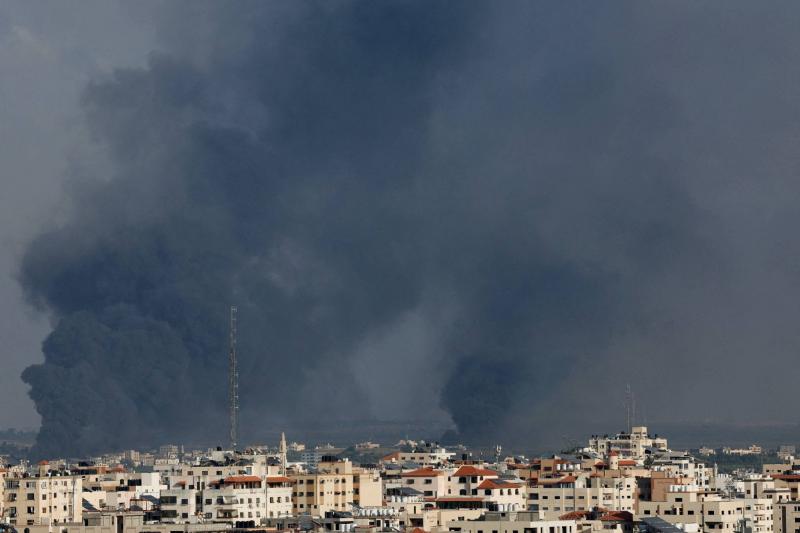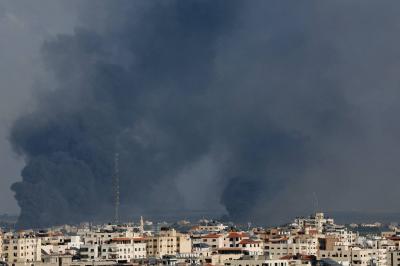Any Israeli invasion of Gaza faces an enemy that has amassed a vast stockpile of weapons with Iranian assistance and has dug a widespread tunnel network to evade attackers. In previous ground wars, Hamas has demonstrated its ability to inflict greater human losses on Israeli forces each time. An Israeli security source and experts indicate that Israel is amassing tanks at the Gaza border, and Israeli ministers have suggested that the decision to invade is certain, pending only the timing of the operation. Israeli generals will review lessons learned from previous ground assaults in 2008 and 2014, which also aimed to crush Hamas.
However, Hamas has shown itself to be a tougher adversary each time, executing its most devastating operation on October 7, when its militants killed more than 1,300 Israelis, mostly civilians, in the fiercest attack on Israeli territory since the country's founding in 1948. Israeli airstrikes in response have resulted in over 1,400 deaths in Gaza so far. Neither party can accurately predict what to expect in a ground war. Israel has promised a campaign that surpasses any it has ever conducted to erase Hamas "from the face of the earth," while Hamas has shown its ability to survive and surprise, planning to fight in a densely populated urban environment with powerful weapons.
A Palestinian armed faction official in Gaza, who only identified himself as Abu Abdullah, told Reuters that "a ground invasion would be like diving into the heart of the unknown for the occupation and its forces." Israeli officials clarified that the campaign will not be quick or easy. This time, Israel faces the problem of dozens of Israeli hostages held by Hamas in the tunnel area, which Israeli forces refer to as the "Gaza Metro," that troops must clear to eliminate Hamas.
An Israeli security source told Reuters, "The objective is to entirely crush the military capabilities and military apparatus of Hamas, and this will require a lengthy operation." The source added that "most targets, individuals, equipment, and logistics are underground, and the hostages are likely underground... the goal is to pound the ground so that we can later access the underground hideouts." In Gaza, home to 2.3 million people, the risk of increasing civilian casualties could complicate Israeli military plans.
Based on past experiences, Israeli bunker-busting bombs and advanced Merkava tanks will confront booby-trapped tunnels and fighters who use the underground network to attack, accompanied by Hamas’s array of weapons including Russian-made Kornet anti-tank missiles, which Israel stated were used for the first time in 2010. Israel is mobilizing hundreds of thousands of reserve soldiers to fight the militants, whose numbers a former Israeli Security Agency (Shin Bet) official estimated could reach 20,000.
Hamas spokespeople have refrained from discussing military operations or planning with Reuters. Hamas political bureau deputy chief Saleh al-Arouri told Al Jazeera that before launching its attack on Israel, Hamas had a stronger defensive plan than its offensive one. Israeli officials did not discuss any military details, but an Israeli Foreign Ministry spokesperson stated, "We are preparing for a ground attack," aimed at inflicting significant damage to "terrorist infrastructure" so it does not pose a future threat to Israel.
However, Gaza residents have already observed what they believe to be preparations for invasion in the extensive Israeli bombardment of the region since Hamas's initial assault. Residents say the bombardment has flattened land corridors along the border, potentially clearing the way for ground troops. Nevertheless, Abu Abdullah from one of the Palestinian armed factions stated that Gaza fighters are prepared. He added, "Airpower does not win battles, and many fighters prefer to confront tanks and forces face-to-face, armed with capabilities developed over the years."
Since Hamas took control of Gaza from the Palestinian Authority in 2007, Israel has undertaken two major ground invasions. In each instance, soldier casualties increased compared to the previous one, with nine killed in 2008 and 66 in 2014. This time, Hamas has had more time to prepare and has not concealed its Iranian support, a longstanding regional adversary to Israel.
In the West Bank, Israeli forces have encountered enhanced militant capabilities during a clash last June. In a raid on the Jenin refugee camp, a stronghold for militants, Israeli soldiers fell into an ambush, requiring Apache helicopter support. A member of the Jenin Brigade remarked that "what is happening in Gaza compared to the Jenin camp battle is like night and day." The Israeli government has informed its citizens to prepare for a long conflict to achieve its objectives.
Led by Prime Minister Netanyahu, the Israeli government, previously one of the most hardline in the country’s history, now includes figures opposed to building national unity. Defense Minister Yoav Galant told troops near the border fence on Tuesday, "We have started the attack from the air, and later we will also come from the ground," in one of the strongest indications that the invasion will proceed.
Shalom Ben-Hanan, a former senior official in Shin Bet who is now a fellow at the International Institute for Counter-Terrorism at Reichman University, stated that a ground attack is the only way to dismantle Hamas. He added, "There is no sterile war. We will suffer losses... We will fight and engage with experienced and highly trained fighters," concluding with, "It must be a decisive victory."




